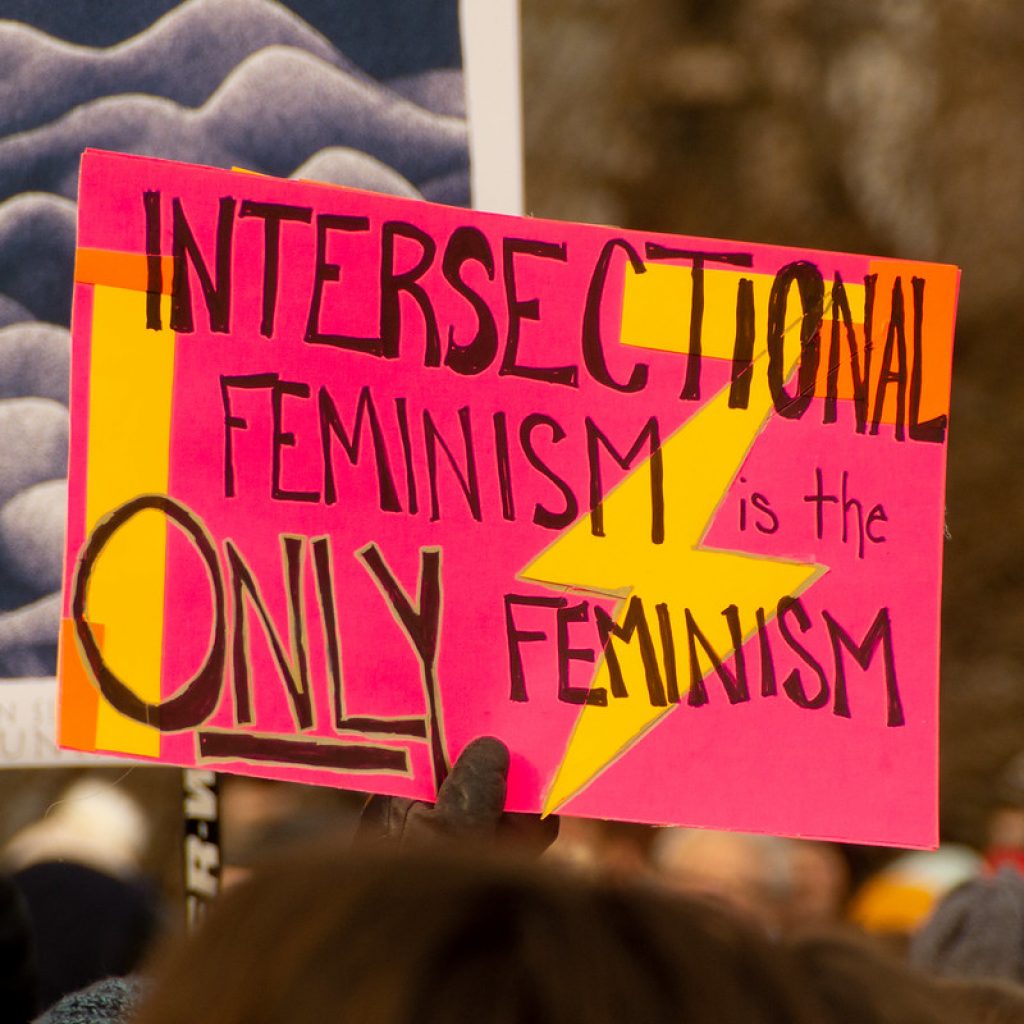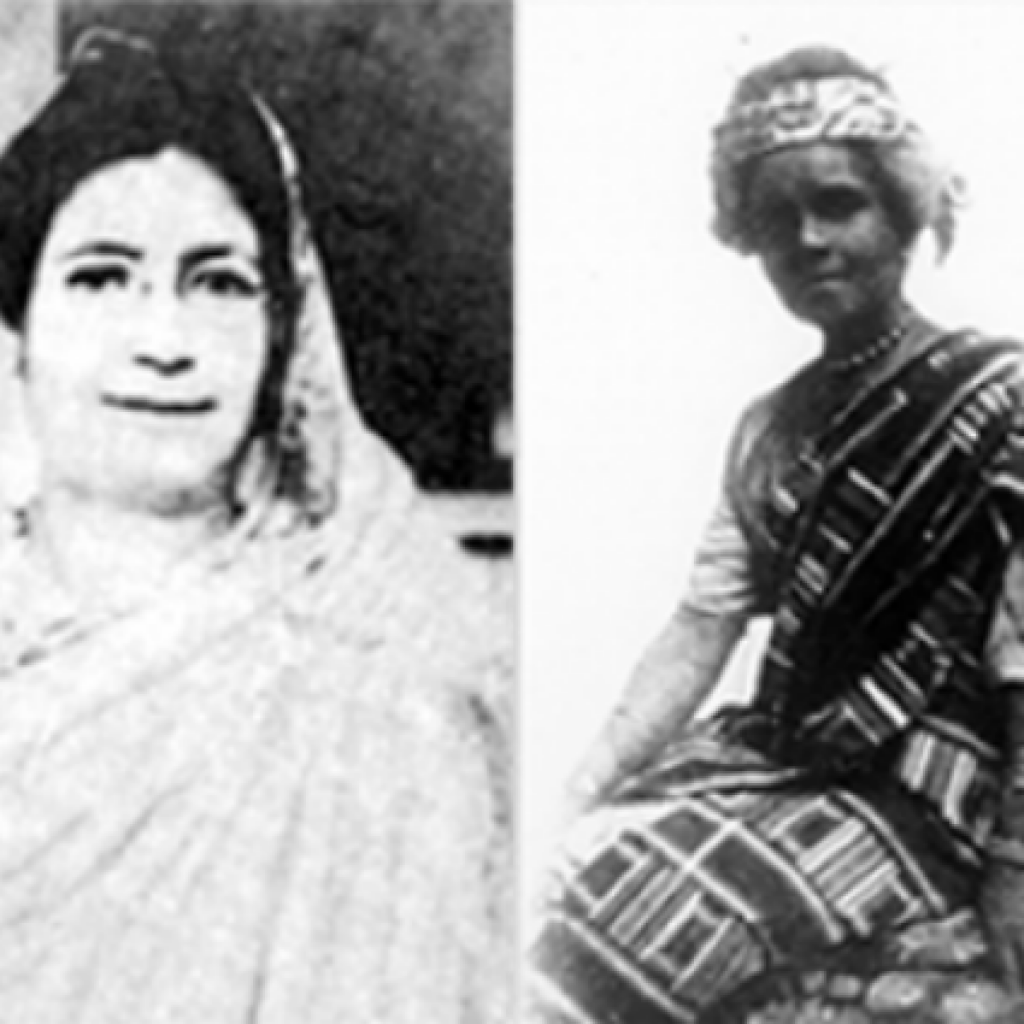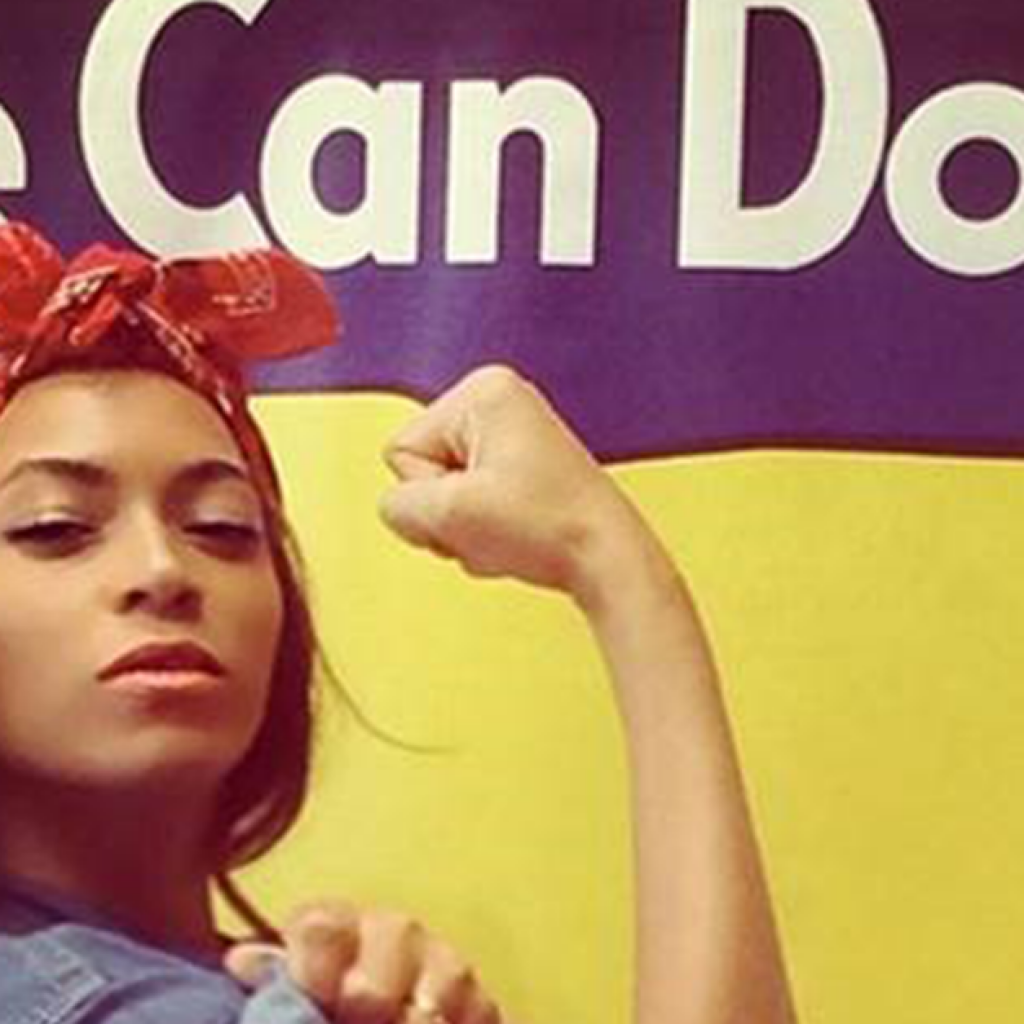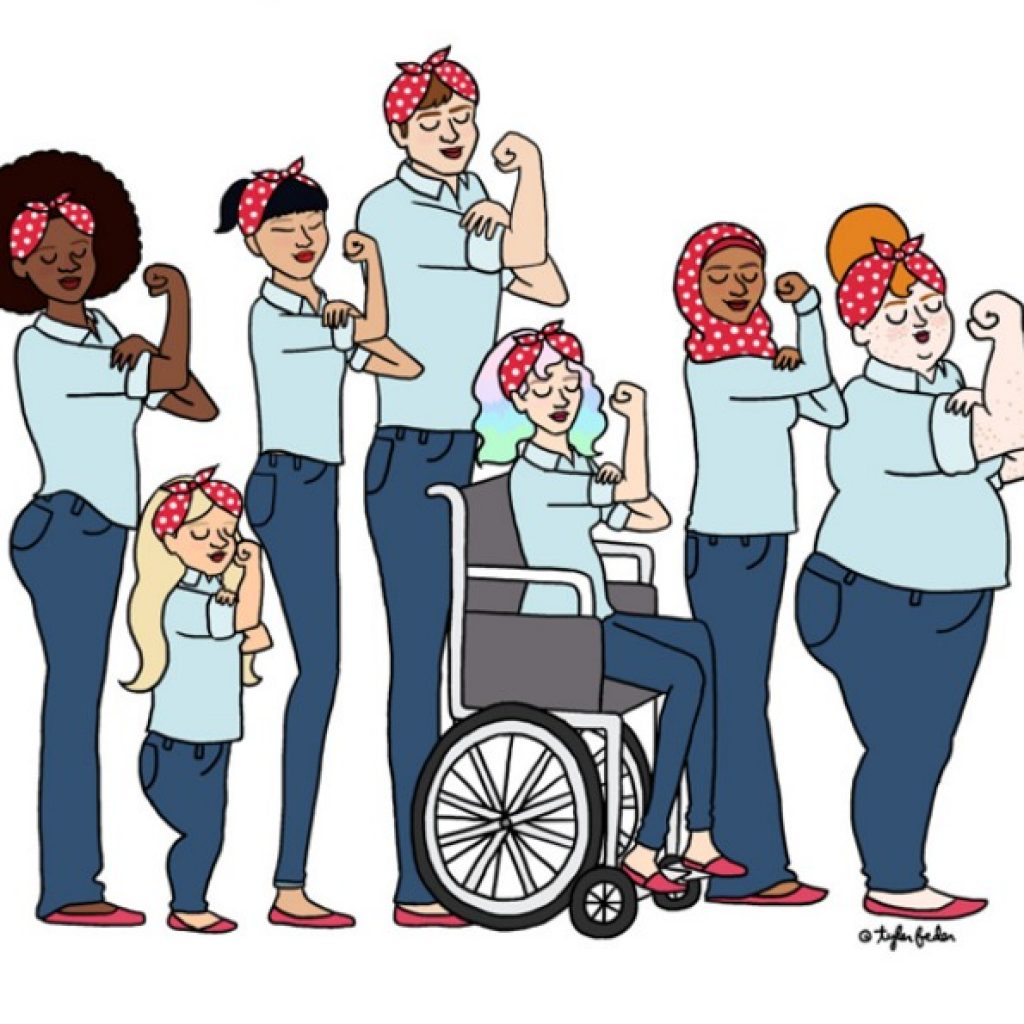
3 ways to be an intersectional feminist ally
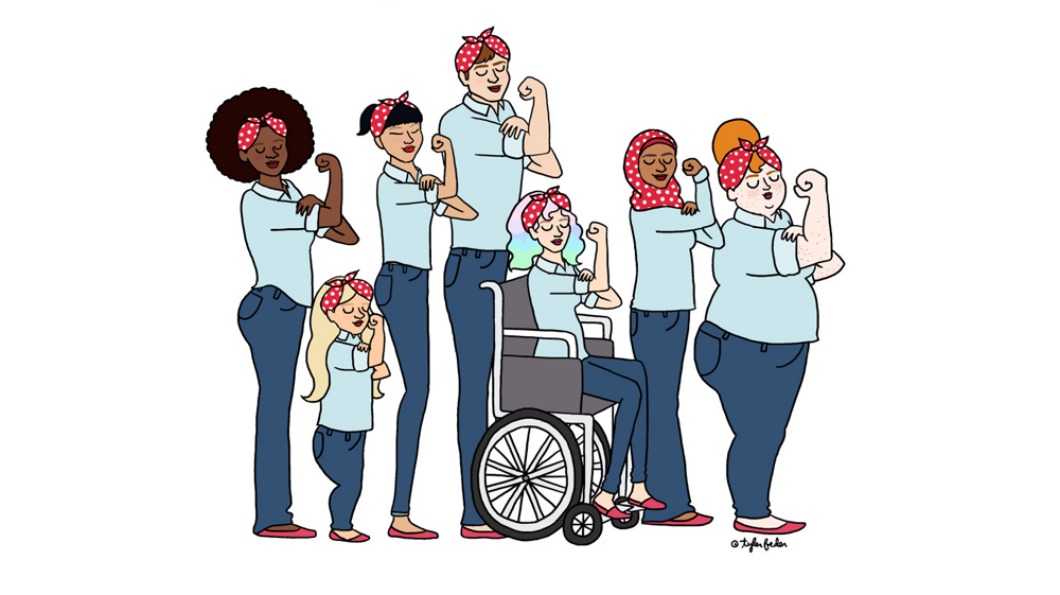
Through our partnership model of working with existing women’s rights organisations across the Asia Pacific region, we make it a priority to build and contribute to an inclusive feminist movement. A big part of that means always approaching our work with an intersectional lens, and we continue to learn so much from the amazing people we work with on what it means to be an ally.
Previously, we spoke a bit about the history of intersectional feminism, and what it means to us. Intersectionality can seem complicated, but it’s really just about acknowledging that women can face different types of oppression.
This doesn’t mean one person’s feminism is more important than the other. It doesn’t take away from any of their experiences. It’s just means approaching women’s rights issues from a position that takes into account all women, in all their diversities. Here are a few ways you can try to be a supportive, inclusive and intersectional feminist ally.
Know your privilege
The barriers faced by a middle class woman living in Melbourne are not the same as those of a queer woman living in rural Fiji. Women aren’t just exposed to sexism – racism, ableism, ageism, homophobia, transphobia, and religious persecution are intrinsically linked to how diverse women experience inequality.
As a feminist movement, we need to advocate for the equality of all women – not just those who experience the same barriers as we do.
To begin to understand the additional degrees of difficulty some women live with, it’s important to look at your own privilege. This can feel like a personal attack, but it isn’t. It’s about noting that your personal history may mean that in some way, you’ve been spared the oppression another woman may have experienced.
You may not know what it’s like to live as a person with a disability, or have never had to deal with racism. But a woman who has may not have experienced discrimination that you have, like homophobia. Checking your privilege isn’t about creating a sliding scale of who’s worse off – it’s about learning and understanding the views of other feminists, and remembering that we’re all in this together. True equality leaves no one behind.
This is a great article that breaks privilege down, and Mia MicKenzie of podcast Black Girl Dangerous gives great advice on a few things to keep in mind.
Take the time to listen and make the space for others
So you’ve self-reflected on your own levels of oppression and feel ready to support your sisters to stand up for their rights. The best way to do this? Give them your full attention, and listen.
Their stories may not make it into mainstream media often, but they’re there – sometimes it just takes a little digging. If you live in a capital city, there are likely to be feminist events and festivals you can attend where diverse women come together to share their experiences.
Melbourne, for example, has hosted events such as the Women of the World Festival, Women of Letters, the Girls on Film Festival, Breakthrough, and the Feminist Writer’s Festival. There are also panel discussions that pop up at places like the Wheeler Centre – most states have similar organisations that you’ll be able to find through Twitter, Facebook or Google.
If you can’t find physical avenues to hear from women where you live, social media is a treasure trove of wonderful humans to learn from, follow and engage with. You can find some great lists of Twitter feminists here, here, and here. On Facebook, Everyday Feminism is an invaluable resource – its diverse array of writers speak about their personal experiences, provide advice on how you can be more inclusive in how you speak about women’s rights, and perfectly illustrate how privilege affects people to differing degrees.
Listening can also mean stepping back. As much as you can in real life, make the space for other people to speak up about their experiences. Advocating for other’s issues doesn’t mean speaking for them – it could be as simple as sharing a Facebook post, or giving space for diverse voices in conversations, whether it’s at work or at the pub.
In some situations, it may involve having awkward conversations with people you feel are saying problematic things. This can be hard, but this article and this article are great guides on how to do so. Sometimes being an ally is just as important as being and advocate.
Know the power of words
If you’ve acknowledged how elements of your life experience affect your place in society and are making an active effort to listen to voices different to your own, you’re already well on the way to being an intersectional ally. But to be a true friend to the movement, it’s important to remember that at the end of the day, it’s not up to other women to educate you on their subcultures or experiences. This is where reading comes in.
There are a tonne of books that can help shed light on the experiences of women – here’s a great list. If you’re more of a podcast person, we’ve compiled a list of some of our favourites – check it out here.
Something else to look at is your own words. Think of all the subtle but hurtful microagressions you experience as a woman on a daily basis – being told you’re bossy, rather than assertive; being told the way you dress means catcalling is your fault; being judged for being a working mother, or one that chooses to stay home. The people saying these things probably don’t actively mean to offend – but they do.
Now imagine what LGBTQI women, women of colour, women with disabilities or women of a particular background would have to contend with. Hearing people use words like ‘ghetto’, ‘crazy’, ‘psycho’, ‘retarded’ or ‘gay’ as insults. Telling them they’re pretty for *insert racial, sexual or physical identifier here*. It’s not meant to harm, but it does. Keep this in mind when you speak, and gently pull your mates up if they use this kind of language. It seems inconsequential, but subtle shifts around how we discuss those around us add up to fewer discriminatory attitudes in the long-run. You can read great guides on words to avoid here and here.
As the wonderful Audre Lorde (an incredible queer black feminist pioneer) famously said, “I am not free while any woman is unfree, even when her shackles are very different from my own.”
We can’t achieve true equality of women without equality of race, sexuality, religion and every other social issue that affects women’s lives. One thing to keep in mind that no one will ever be the perfect intersectional feminist ally – it’s a journey, not a destination anyone ever fully reaches. You will make mistakes, and that’s okay – you just need to always be open to learning.
The more diverse your knowledge of these issues become, the better ally you’ll be able to be to the entire movement, and the stronger the movement becomes.
Love the illustration at the top of the article? So do we. You can see more of Tyler Feder’s amazing work here, and purchase it here and here.
